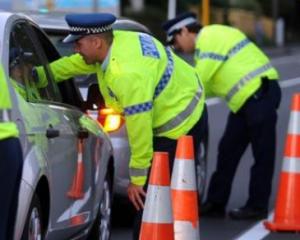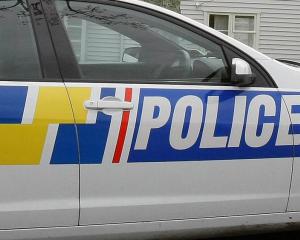The Government's decision to shelve plans to lower the drink-driving limit and instead do more research is being called a "gutless" act that will leave it with "blood on its hands".
Alcohol health groups yesterday reacted with anger and disappointment to the Government's plans to leave the legal drink-driving limit at 80mg of alcohol per 100ml of blood.
Other Government measures announced yesterday mean drivers under 20 and repeat drink-drivers will not be able to consume any alcohol at all before getting behind the wheel, but it will be at least two years before the Government revisits the drink-driving limit for others.
The Government was considering lowering the adult limit to 50mg, but Transport Minister Steven Joyce said he needed more public support and research into whether drivers with a blood-alcohol level between 50mg and 80mg were involved in many crashes.
Alcohol Healthwatch director Rebecca Williams called the Government "gutless", as there was already ample evidence and public support in favour of lowering the limit.
"This is a regrettable failure that leaves our Government with blood on its hands," she said.
Prof Doug Sellman, from the National Addiction Centre, said the Government lacked leadership and the Alcohol Advisory Council said the decision was "disappointing".
The Ministry of Transport estimates lowering the limit to 50mg and increasing enforcement and public awareness would save 15 to 30 lives each year and prevent 320 to 686 injuries.
The NZ Drug Foundation says there have already been 300 studies in the past 50 years into lowering the limit, and six of eight overseas jurisdictions showed positive results after reducing the limit to 50mg.
Mr Joyce acknowledged advice that lowering the limit would save lives.
"They also tell you that if you didn't allow anyone to have any alcohol, you would save more lives, and if you actually didn't let anybody drive, it would save the lot."
More New Zealand research was needed.
From next year, drivers in accidents will be subjected to two compulsory breath tests.
If they pass the first test, they will have to do a second to see if their blood-alcohol level is between 50mg and 80mg.
This information, which will be publicly available, will be recorded for two years.
Mr Joyce said he suspected the threshold would be lowered to 50mg over time, but before then the Government needed "more information and more public acceptance than we currently have".
There was public concern about consuming two drinks in an hour and being over the limit, he said.
Judges will decide whether to impose interlocks on drink-drivers, normally after a second conviction.
Interlocks are devices that only allow a car to start if the driver passes a breath test.
Drivers will have to pay $150 per month for their interlock, which they will have for at least a year following a three-month disqualification period.
They will have to earn their way off the interlock programme by going six months without an interlock violation, or three months if they have done an alcohol assessment.
The maximum penalty for dangerous/drink-driving causing death will be doubled to 10 years in prison.




